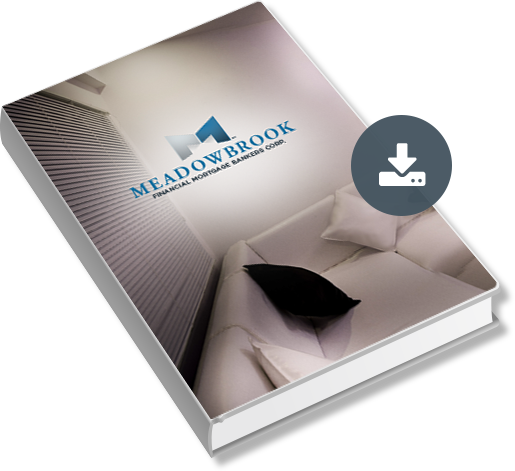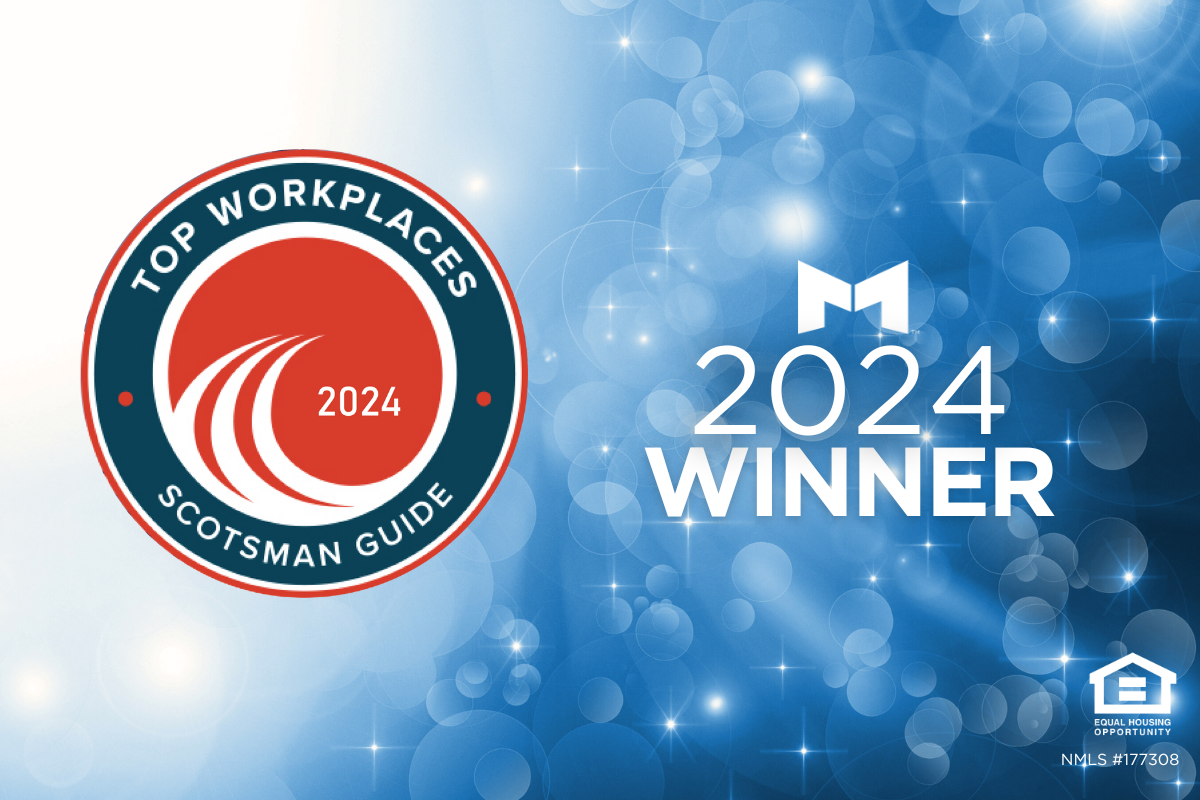Search Blog Posts by Blog Topic
What Is a Jumbo Loan and Is It Right for You?
December 15, 2023
If you plan to buy a luxury home or are looking in an exclusive neighborhood, there’s a good chance you’ll need a jumbo loan. More often than not, people who buy expensive homes turn to jumbo loans because the funds they require tend to exceed conforming loan limits. So, just what is a jumbo loan, and should you consider getting one?
What Is a Jumbo Loan?
Every year, the Federal Housing Finance Agency (FHFA) sets maximum loan limit values for mortgages that Fannie Mae and Freddie Mac guarantee. In 2024, this conforming loan limit (CLL) for single-unit homes across most parts of the U.S. stands at $766,550. It was $726,200 in 2023. While this number serves as the national baseline, it may vary for high-cost areas. For example, the CLL for single-unit homes in Nassau, Kings, and Queens Counties in New York State for 2024 is $1,149,825.
A jumbo loan comes into play if the amount you wish to borrow to purchase a home exceeds the CLL set for the area in question. For example, if you want to buy a $2,000,000 home in NYC and cannot afford/or wish to make a down payment in the amount so as not to exceed the conforming loan limit, you’ll need a jumbo loan. It’s common to refer to a jumbo loan as a non-conforming loan because it exceeds the CLL set by FHFA.
How Jumbo Loans Work
Much like conventional loans, jumbo loans come with fixed and variable interest rates, and you get to choose from different loan terms as well. For example, you may opt for a 15- or 30-year jumbo loan depending on your requirements. You may use a jumbo loan to buy a luxury home, a two to four unit property, or a home in a very expensive area. In addition, you may use the proceeds from a jumbo loan to buy a home that will serve as your primary residence or an investment property.
Looking to Purchase a Home on Long IslandContact Us
Jumbo Loan vs. Conventional Loan
While there are several similarities between jumbo and conventional/conforming loans, there are some key differences that require your attention. For example, your jumbo loan might come with a higher interest rate than a comparable conforming loan.
Creditworthiness
There is a direct effect of credit scores on mortgages, and this does not limit to the interest rate you get. The minimum credit score you need to qualify for a conforming loan depends on the type of mortgage you need. For USDA loans, you typically need a credit score of 640 or higher. With VA loans, you might qualify if your credit score is 620 or higher. If you plan to get an FHA loan, you may qualify with a score as low as 500.
When it comes to jumbo loans, most lenders require applicants to have credit scores of700 or higher, and rather few go as low as 660. This is mainly because lenders view jumbo loans as riskier than their conforming counterparts because Fannie Mae and Freddie Mac do not guarantee them.
Down Payment
The section of the jumbo vs. conventional loan comparison tilts in favor of the latter because you get considerably more leeway when making a down payment for a conforming loan. Just how much down payment you need to make for a conforming loan may vary from 0% to 20% depending on the type of mortgage you seek. For example, eligible borrowers may get VA and USDA loans without making any down payment, and FHA loans come with a 3.5% minimum down payment requirement.
Lenders who provide jumbo loans typically require that you make a down payment of 10% to 20%, although some might require that you pay as much as 30%. If you qualify to pay less than 20%, you might need to account for the extra expense that comes in the form of private mortgage insurance (PMI), which is also the case with most types of conforming mortgages.
Consider this – you wish to purchase a home for $2,000,000. Your lender requires that you pay at least 25% as down payment, which amounts to $500,000. Bear in mind that this does not include other expenses associated with the closing costs you’ll need to cover.

Interest Rates
Traditionally, the higher risk that lenders face when they provide jumbo loans has resulted in their interest rates being slightly higher when compared to conforming loans, often by 1% to 2%. The increased risk comes because neither Fannie Mae nor Freddie Mac guarantees these loans.
Qualification Process
Jumbo loans tend to come with more stringent eligibility criteria than conforming loans because of the higher risk that lenders face. You may also expect increased scrutiny of your credit history and income during the underwriting process. This may include additional assessments and a second appraisal.
Closing Costs
Jumbo loans tend to come with a more extensive verification process when compared to conforming loans. As a result, it’s common for lenders to charge a higher percentage of a home’s selling price as closing costs. These may vary from 3% to 6% of a home’s value.
Looking to Purchase a Home on Long IslandContact Us
Other Jumbo Loan Requirements
One of the key requirements of getting a jumbo loan is for you to have strong credit. In addition, you also need to make a reasonable down payment that could be as high as 30% of a home’s selling price. Other requirements relate to:
- Cash flow. Lenders look at your debt-to-income (DTI) ratio to find out how much of your monthly income goes toward paying your debt. This, in turn, highlights how well you manage your cash flow and the risk you pose as a borrower. While getting a conforming mortgage with a DTI of up to 50% is possible, you typically need it to be 43% or lower to qualify for a jumbo loan. Some jumbo loan providers require DTI ratios of 36% or lower.
- Assets/cash reserves. Jumbo loan providers commonly require applicants to show that they have additional liquid assets or savings of up to 12 months of homeownership expenses. This is to safeguard their interests and minimize the possibility of missed payments.
- Loan-to-value ratio. Loan-to-value (LTV) ratio refers to the amount that a lender is willing to provide in the form of a percentage of a property’s value. For example, if a lender provides a $1,600,000 loan toward a property valued at $2,000,000, the LTV stands at 80%. The maximum LTV typically required for a jumbo loan is 90%.
- Appraisals. While a property appraisal is a norm with just about every type of mortgage, a jumbo loan provider might ask for a second appraisal to confirm the home’s market value.
How to Get the Best Jumbo Loan Rates?
Your credit score has an impact on the interest rate that comes with your jumbo loan because it indicates the level of risk you pose as a borrower. If you’re hoping to get the lowest jumbo loan rates, try and improve your credit score to 760 or higher. Paying all your bills on time and bringing down your credit utilization ratio can help.
The down payment amount may also have an effect on your loan’s interest rate, wherein making a larger payment might bring with it a lower rate.

Pros and Cons of Jumbo Loans
Like most other types of mortgages, jumbo loans come with their share of advantages and disadvantages.
Pros
- Borrow a large amount. A jumbo loan gives you the means to borrow considerably more money than the conforming loan limit set by the Federal Housing Finance Agency.
- Flexible terms. Depending on what works better for you, you may choose from fixed- and adjustable-rate jumbo loans. Most lenders also let you opt for 15- or 30-year loan terms.
- Competitive rates. While lenders tend to view jumbo loans as riskier than conforming loans, the difference in interest rates can be negligible. Besides, if you have strong credit and your finances are in order, you might end up qualifying for a highly competitive rate.
Cons
- Need a good credit score. While you might qualify for a conforming loan with fair/average credit, qualifying for a jumbo loan requires that you have good or exceptional creditworthiness, with a credit score of 700 or higher.
- Need cash reserves. Most jumbo loan providers require that you have at least 12 months of cash reserves to take care of your mortgage payments and other housing-related costs. This is to minimize the risk they face owing to possible defaults.
- Increased scrutiny. Given the risk factor, the underwriting process of a jumbo loan is typically more meticulous than that of a conforming loan. You may expect your lender to scrutinize your financial profile with a fine-tooth comb, requiring that you submit extensive documentation to verify your income, savings, assets, and overall financial condition.
- Tax implications. According to the Internal Revenue Service (IRS), you may deduct interest on your mortgage only on the first $750,000. Any amount of interest you pay over this limit does not qualify for tax deduction. In addition, the Tax Cuts and Jobs Act (TCJA)has capped the state and local tax (SALT) deduction that lets you deduct certain taxes like property tax at $10,000. Both these factors work as drawbacks from the tax savings point of view, and it’s best that you consult a tax expert for details.
Should You Get a Jumbo Loan?
If you fall under the “high earners, not rich yet” (HENRY) section of individuals who earn $100,000 to $500,000 annually and have good credit along with adequate cash reserves, you may consider getting a jumbo loan.
Conclusion
If you’re interested in buying a large or expensive home that does not meet conforming loan limits, you may consider getting a jumbo loan. Fortunately, qualifying for a jumbo loan is not as complicated as one might imagine. If you have your finances in order, adequate savings, and a good credit score, you might be eligible to get a jumbo loan for funding the purchase of your dream home. If you want to get the process underway, consider discussing your requirement with a reliable mortgage provider who can guide you through the process.
Ready To Get Started?
Fill out the form below and a mortgage professional will get back to you shortly.

First Time Homebuyer’s Guide
Considering homeownership but not sure where to begin? The Meadowbrook Financial Mortgage Bankers Corp. guide to home buying will make the process easy all in one packet.
Recent Articles

Tips to Speed Up Closing on a House
1 April, 2025When you find your dream home, you want your next chapter to begin as soon as possible! Closing on a house is certainly a process…

How to Get a Self-Employed Mortgage
8 March, 2025The opportunity of homeownership should be accessible to everyone, especially our self-employed clients! While there are so many benefits to being your own boss, you…

What Homeowners Wish They Knew Before Downsizing
1 March, 2025Moving to a new and smaller home can be a daunting and time-consuming process. In addition, while downsizing homes might work well for some, it…


